Citibank 2015 Annual Report Download - page 80
Download and view the complete annual report
Please find page 80 of the 2015 Citibank annual report below. You can navigate through the pages in the report by either clicking on the pages listed below, or by using the keyword search tool below to find specific information within the annual report.-
 1
1 -
 2
2 -
 3
3 -
 4
4 -
 5
5 -
 6
6 -
 7
7 -
 8
8 -
 9
9 -
 10
10 -
 11
11 -
 12
12 -
 13
13 -
 14
14 -
 15
15 -
 16
16 -
 17
17 -
 18
18 -
 19
19 -
 20
20 -
 21
21 -
 22
22 -
 23
23 -
 24
24 -
 25
25 -
 26
26 -
 27
27 -
 28
28 -
 29
29 -
 30
30 -
 31
31 -
 32
32 -
 33
33 -
 34
34 -
 35
35 -
 36
36 -
 37
37 -
 38
38 -
 39
39 -
 40
40 -
 41
41 -
 42
42 -
 43
43 -
 44
44 -
 45
45 -
 46
46 -
 47
47 -
 48
48 -
 49
49 -
 50
50 -
 51
51 -
 52
52 -
 53
53 -
 54
54 -
 55
55 -
 56
56 -
 57
57 -
 58
58 -
 59
59 -
 60
60 -
 61
61 -
 62
62 -
 63
63 -
 64
64 -
 65
65 -
 66
66 -
 67
67 -
 68
68 -
 69
69 -
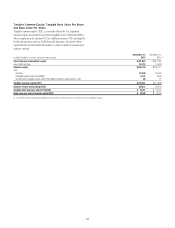 70
70 -
 71
71 -
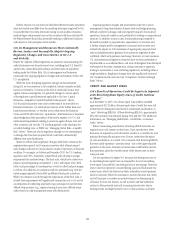 72
72 -
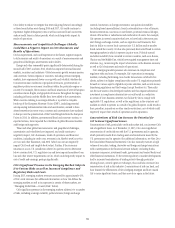 73
73 -
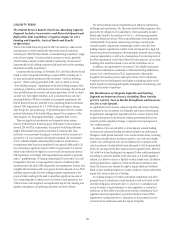 74
74 -
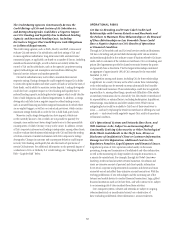 75
75 -
 76
76 -
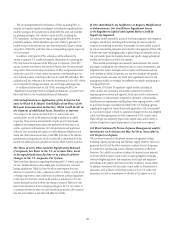 77
77 -
 78
78 -
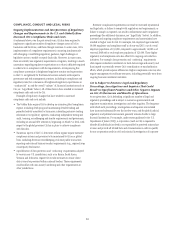 79
79 -
 80
80 -
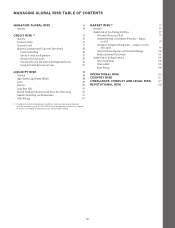 81
81 -
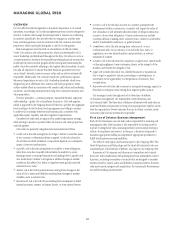 82
82 -
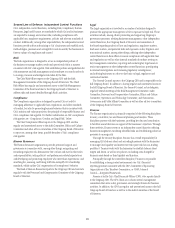 83
83 -
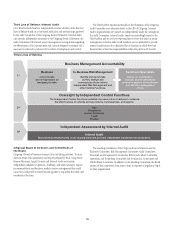 84
84 -
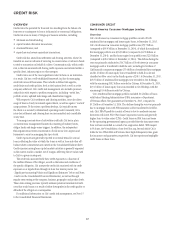 85
85 -
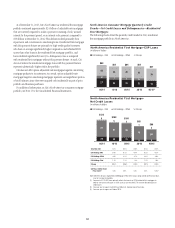 86
86 -
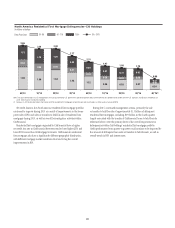 87
87 -
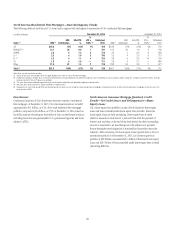 88
88 -
 89
89 -
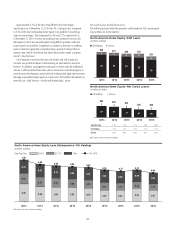 90
90 -
 91
91 -
 92
92 -
 93
93 -
 94
94 -
 95
95 -
 96
96 -
 97
97 -
 98
98 -
 99
99 -
 100
100 -
 101
101 -
 102
102 -
 103
103 -
 104
104 -
 105
105 -
 106
106 -
 107
107 -
 108
108 -
 109
109 -
 110
110 -
 111
111 -
 112
112 -
 113
113 -
 114
114 -
 115
115 -
 116
116 -
 117
117 -
 118
118 -
 119
119 -
 120
120 -
 121
121 -
 122
122 -
 123
123 -
 124
124 -
 125
125 -
 126
126 -
 127
127 -
 128
128 -
 129
129 -
 130
130 -
 131
131 -
 132
132 -
 133
133 -
 134
134 -
 135
135 -
 136
136 -
 137
137 -
 138
138 -
 139
139 -
 140
140 -
 141
141 -
 142
142 -
 143
143 -
 144
144 -
 145
145 -
 146
146 -
 147
147 -
 148
148 -
 149
149 -
 150
150 -
 151
151 -
 152
152 -
 153
153 -
 154
154 -
 155
155 -
 156
156 -
 157
157 -
 158
158 -
 159
159 -
 160
160 -
 161
161 -
 162
162 -
 163
163 -
 164
164 -
 165
165 -
 166
166 -
 167
167 -
 168
168 -
 169
169 -
 170
170 -
 171
171 -
 172
172 -
 173
173 -
 174
174 -
 175
175 -
 176
176 -
 177
177 -
 178
178 -
 179
179 -
 180
180 -
 181
181 -
 182
182 -
 183
183 -
 184
184 -
 185
185 -
 186
186 -
 187
187 -
 188
188 -
 189
189 -
 190
190 -
 191
191 -
 192
192 -
 193
193 -
 194
194 -
 195
195 -
 196
196 -
 197
197 -
 198
198 -
 199
199 -
 200
200 -
 201
201 -
 202
202 -
 203
203 -
 204
204 -
 205
205 -
 206
206 -
 207
207 -
 208
208 -
 209
209 -
 210
210 -
 211
211 -
 212
212 -
 213
213 -
 214
214 -
 215
215 -
 216
216 -
 217
217 -
 218
218 -
 219
219 -
 220
220 -
 221
221 -
 222
222 -
 223
223 -
 224
224 -
 225
225 -
 226
226 -
 227
227 -
 228
228 -
 229
229 -
 230
230 -
 231
231 -
 232
232 -
 233
233 -
 234
234 -
 235
235 -
 236
236 -
 237
237 -
 238
238 -
 239
239 -
 240
240 -
 241
241 -
 242
242 -
 243
243 -
 244
244 -
 245
245 -
 246
246 -
 247
247 -
 248
248 -
 249
249 -
 250
250 -
 251
251 -
 252
252 -
 253
253 -
 254
254 -
 255
255 -
 256
256 -
 257
257 -
 258
258 -
 259
259 -
 260
260 -
 261
261 -
 262
262 -
 263
263 -
 264
264 -
 265
265 -
 266
266 -
 267
267 -
 268
268 -
 269
269 -
 270
270 -
 271
271 -
 272
272 -
 273
273 -
 274
274 -
 275
275 -
 276
276 -
 277
277 -
 278
278 -
 279
279 -
 280
280 -
 281
281 -
 282
282 -
 283
283 -
 284
284 -
 285
285 -
 286
286 -
 287
287 -
 288
288 -
 289
289 -
 290
290 -
 291
291 -
 292
292 -
 293
293 -
 294
294 -
 295
295 -
 296
296 -
 297
297 -
 298
298 -
 299
299 -
 300
300 -
 301
301 -
 302
302 -
 303
303 -
 304
304 -
 305
305 -
 306
306 -
 307
307 -
 308
308 -
 309
309 -
 310
310 -
 311
311 -
 312
312 -
 313
313 -
 314
314 -
 315
315 -
 316
316 -
 317
317 -
 318
318 -
 319
319 -
 320
320 -
 321
321 -
 322
322 -
 323
323 -
 324
324 -
 325
325 -
 326
326 -
 327
327 -
 328
328 -
 329
329 -
 330
330 -
 331
331 -
 332
332
 |
 |
62
wrongdoing. The complexity of the federal and state regulatory and
enforcement regimes in the U.S., coupled with the global scope of Citi’s
operations, also means that a single event or issue may give rise to a large
number of overlapping investigations and regulatory proceedings, either by
multiple federal and state agencies in the U.S. or by multiple regulators and
other governmental entities in different jurisdictions.
Moreover, U.S. and non-U.S. regulators have been increasingly focused
on “conduct risk,” a term that is used to describe the risks associated with
behavior by employees and agents, including third-party vendors utilized by
Citi, that could harm consumers, investors or the markets, such as failures
to safeguard consumers’ and investors’ personal information, failures to
identify and manage conflicts of interest and improperly creating, selling
and marketing products and services. In addition to increasing Citi’s
compliance risks, this focus on conduct risk could lead to more regulatory or
other enforcement proceedings and litigation, including for practices which
historically were acceptable but are now receiving greater scrutiny. Further,
while Citi takes numerous steps to prevent and detect conduct by employees
and agents that could potentially harm customers, investors or the markets,
such behavior may not always be deterred or prevented. Banking regulators
have also focused on the overall culture of financial services firms, including
Citi. In addition to regulatory restrictions or structural changes that could
result from perceived deficiencies in Citi’s culture, such focus could also lead
to additional regulatory proceedings.
Further, the severity of the remedies sought in legal and regulatory
proceedings to which Citi is subject has increased substantially in recent
years. U.S. and certain international governmental entities have increasingly
brought criminal actions against, or have sought criminal convictions from,
financial institutions, and criminal prosecutors in the U.S. have increasingly
sought and obtained criminal guilty pleas or deferred prosecution
agreements against corporate entities and other criminal sanctions from
those institutions. As previously disclosed, in May 2015 an affiliate of Citi
entered into a settlement with the DOJ whereby the affiliate pleaded guilty
to an antitrust violation and paid a substantial fine to resolve the DOJ’s
investigations into Citi’s foreign exchange business practices. These types
of actions by U.S. and international governmental entities may, in the
future, have significant collateral consequences for a financial institution,
including loss of customers and business, and the inability to offer certain
products or services and/or operate certain businesses. Citi may be required
to accept or be subject to similar types of criminal remedies, consent orders,
substantial fines and penalties or other requirements in the future, including
for matters or practices not yet known to Citi, any of which could materially
and negatively affect Citi’s businesses, business practices, financial condition
or results of operations, require material changes in Citi’s operations or cause
Citi reputational harm.
Further, many large claims asserted against Citi are highly complex,
slow to develop and may involve novel or untested legal theories. The
outcome of such proceedings is difficult to predict or estimate until late
in the proceedings. Although Citi establishes accruals for its legal and
regulatory matters according to accounting requirements, Citi’s estimates
of, and changes to, these accruals, involve significant judgment and may be
subject to significant uncertainty and the amount of loss ultimately incurred
in relation to those matters may be substantially higher than the amounts
accrued. In addition, certain settlements are subject to court approval and
may not be approved.
For additional information relating to Citi’s legal and regulatory
proceedings and matters, including Citi’s policies on establishing legal
accruals, see Note 28 to the Consolidated Financial Statements.
